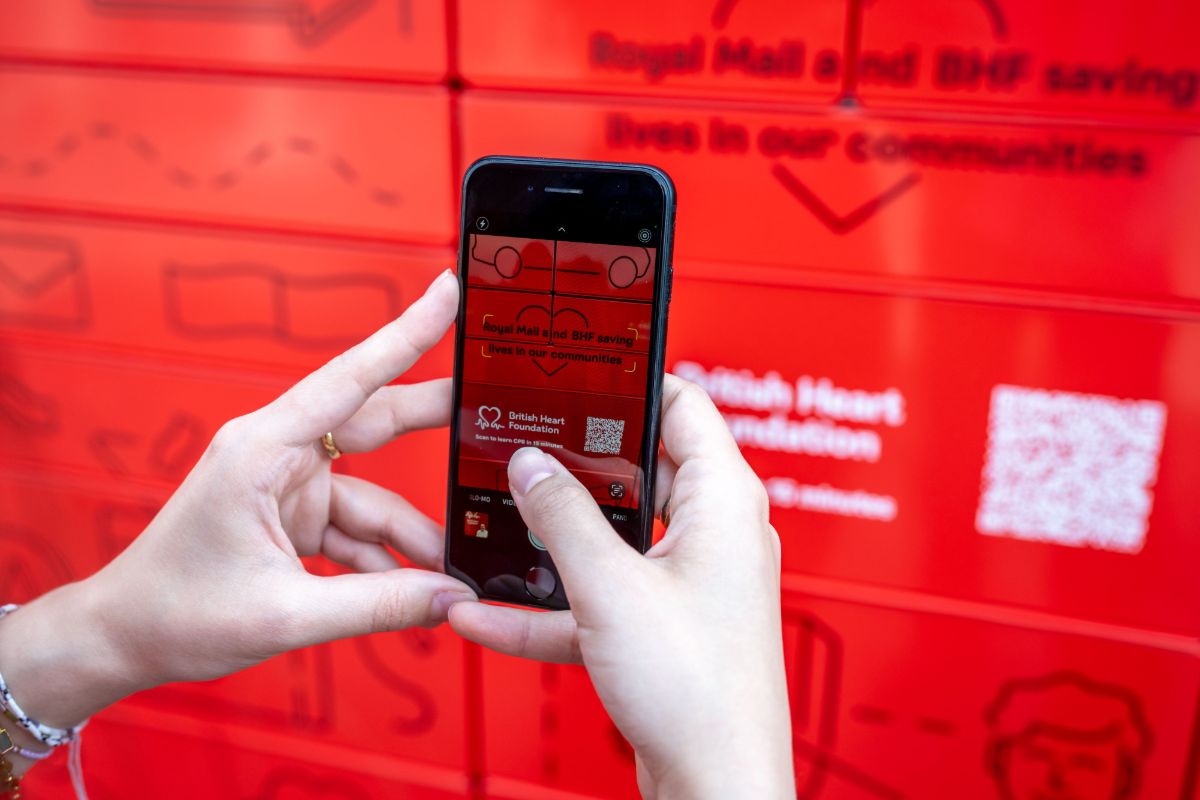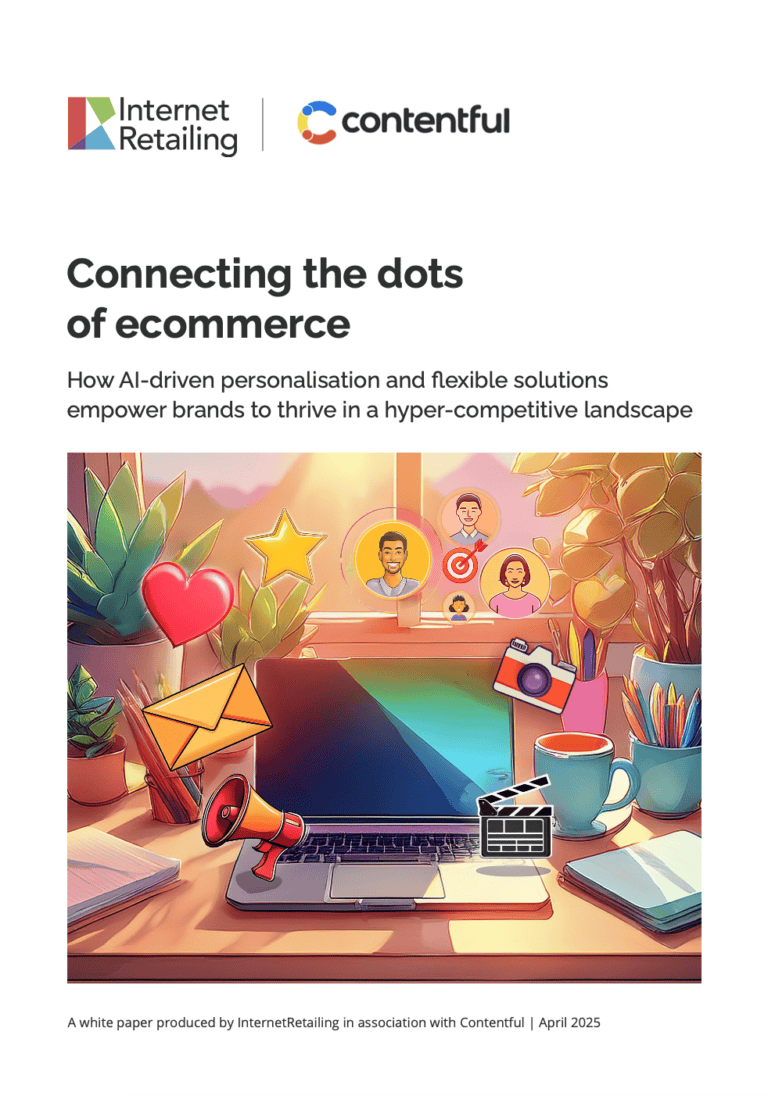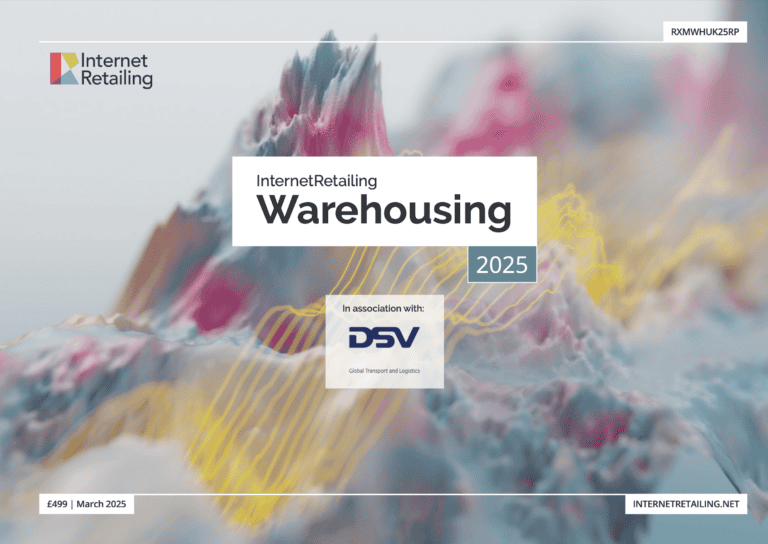As ONS figures out today show online gaining a record share of retail sales in May, we round up key analysis, insights and indicators into the rate of expansion
DPD expands to meet ‘the biggest boom in online retailing in the UK’
DPD is expanding to meet new, higher levels of demand for its courier services from retailers. It’s investing £200m in new vehicles and 15 regional depots. It will create 6,000 new jobs, including 2,500 full-time depot and management jobs and 3,500 jobs for drivers.
DPD says demand for its next-day delivery services was already rising before lockdown, as more people did more of their shopping online. That’s continued, with its existing retail customers now seeing a boom in demand, while new customers have developed online propositions for the first time in order to keep sales going during lockdown. It now expects growth to continue this year, as households rely on online deliveries for more of their shopping – and groceries.
The new investment and jobs are scheduled to be in place by Black Friday – which DPD predicts will be its busiest Cyber weekend and Christmas period ever.
“We are experiencing the biggest boom in online retailing in the UK’s history and we are making this unprecedented investment in our infrastructure and people to ensure we can continue to meet the high levels of demand for our services,” said Dwain McDonald, chief executive of DPD.
“DPD has been one of the fastest growing major companies in the UK in the last 10 years, due to the growth in e-commerce. But what we have seen in recent months is potentially a much more significant shift in behaviour, and we believe elements of it will be permanent. As a company, we’ve been dealing with rapid growth and ongoing investment cycles for a long time, but this is a very significant moment.
“I do think the High Street will bounce back from where things are now, but we have to base our modelling on our conversations with retailers and their projections. It looks like there will remain a much greater reliance on ecommerce in the future – that’s going to be our ‘new normal’. This investment and expansion mean that we will continue to be right there for our retail customers, alongside them, with the capacity to cope with the demand they are seeing online.
“Since this began, we have been handling parcel volumes more akin to the festive seasonal peak than this time of year. For example, volumes over Easter were double last year. The business has performed incredibly well, with service standards at record high levels, as more people have been at home to receive parcels and the roads have been quieter. All this while the operation has had to start scaling-up and adapt to social distancing and contactless deliveries.”
The Covid-19 effect on ecommerce
Forecasters suggest UK ecommerce will grow in value by as much as £5.3bn in 2020. Analysis from Edge Retail Insight, the forecasting arm of ecommerce provider Edge by Ascential, expects that shoppers will spend as much as £2bn more at Amazon alone to reach a sales total of £31.1bn for the retailer in this market. Wider UK online spending is expected to grow by £5.3bn to reach £78.9bn – representing growth of 19% compared to 2020, when Edge Retail says shoppers spent £66.3bn.
Beyond ecommerce, Edge predicts that Tesco will generate most revenue in 2020 as its forecast gross sales reach £61.1bn, followed by Sainsbury’s (£31bn). It predicts that sales will also be up at pharmacies and health retailers, discounters and cash and carry operators, but down at department stores.
Xian Wang, senior director of product and content at Edge by Ascential, said: “The Covid-19 pandemic has almost certainly had a lasting impact on the retail sector, reshaping consumer shopping habits, and the priorities for retailers and brands. Most prominently, we’re seeing a significant shift to online, as consumers have become reliant on this, following the swathe of store closures globally. This will no doubt lead strong ecommerce players, such as Amazon, to benefit from this greatly.”
How shoppers are spending
Forrester says that while UK consumers are spending more time online, they’re not always spending more money. Almost a third (32%) say they are spending more, in a new report, The UK in the pandemic: how consumers and businesses are changing – but 40% say they are spending the same, and more than half (51%) say they have cut back on all spending. Overall, it sees shoppers spending 39% more more on groceries and 26% more on on-demand entertainment. Spending on clothing (-46%) and personal care and beauty products (-23%) are both down.
Some 15% of UK adults have bought groceries online for the first time during the pandemic and 34% of these say they’ll buy more online in the future. Meanwhile, 44% are using contactless payments more often as they try to avoid touching screens.
Forrester analyst Michelle Beeson said: “As entertainment venues, restaurants, and retail stores remain closed, UK consumers have been forced online for products, services, connection, and entertainment. The economic fallout from the pandemic will inevitably lead to bankruptcy, unemployment, and lower consumer spending. Many uK consumers want to return to normal, but the pandemic will have a lasting impact on what the new ‘normal’ looks like.
A second Forrester report, The state of commerce experience, produced with Bloomreach, analyses the business experience, questioning 50 global decision makers of digital campaigns, online experiences and/or ecommerce programmes and technology programmes and finds that 46% of businesses are seeing business grow as online sales spike, with 6% reporting unprecedented growth. But a fifth (22%) say their business has seen relatively no impact, and 28% say their business will need to downsize significantly and/or lay off staff. Some 2% say their business will probably need to close permanently because they can’t produce what they need to, while 2% say their businesses will probably close because of the cost of having to close shops.
Asked about their budget plans, 64% expect, post-Covid, to invest in direct online websites, 58% in their mobile appp, 52% in social media, and 46% in third-party marketplaces.
Retailers may still lose money despite online growth
Covid-19 will mean that retailers lose £37bn this year as the fast growth in online fails to make up for the money not spend in shops that have been closed and will now need to implement strict safety measures, says GlobalData.
Sofie Willmott, lead analyst at GlobalData, said this week that it would take time for footfall to return to normal because many people would remain cautious both for their health and their finances – two factors combining to keep them away from shops.
Willmott said: “44.8% of UK consumers have spent more online as a result of the outbreak and as a result of changing shopping habits we forecast online non-food expenditure will rise 14.3% this year (versus a pre-Covid forecast of +6.5%). However, the increase in online spending will not be able to prop up the total market as physical stores still account for the vast majority of sales.”
She added: “Clothing is the product area that most visitors are looking forward to shopping for as they start to anticipate a return to social activities and buy into new season trends*. However, we expect clothing and footwear to be the worst hit sectors this year with spend predicted to fall over 30% as shoppers are unlikely to buy more to make up for their lack of purchases across March, April and May.”
She also believes that flagship shopping centres will take a long time to attract the same number of shoppers as previously as customers hung potentially crowded areas and unnecessary travel.
The evolving role of physical stores
Meanwhile, shopping centre operator Intu has worked with Javelin Group on a report that takes a look at the changing role of the physical shop. The report, The value of physical retail, predicts that as far forward as 2025, £8 out of every £10 spent in the UK in retail will be influenced by a store in some way – whether that’s because of click and collect, ordering in-store, ship-from-store, or customer service. The figure includes ‘halo’ sales – online orders thought to have been delivered as a result of the brand awareness driven by stores.
The report suggests that landlord and retailers are now adapting as physical stores change, producing new models for calculating the value of physical stores, new ways of using space in shopping centres, and new rental models.
It concludes: “The part stores play in driving online sales and overall retailer performance continues to be crucial, and models for measuring their contribution should take this into account.
“Landlords and retailers have already started taking steps to adapt to the changes. They now need to work closely together to maximise the value of physical stores going forward. Close collaboration, the pooling of data and information and an open dialogue will be key to success.”









